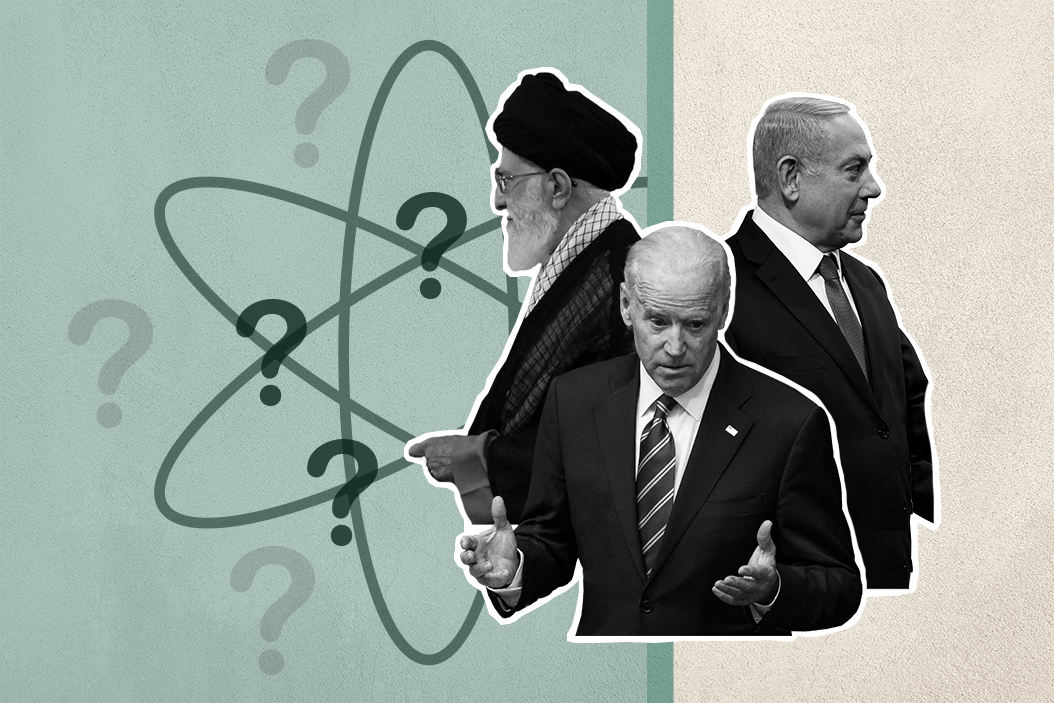April 12, 2021
Iran has vowed to avenge Sunday's attack on its Natanz nuclear facility. Tehran blames Israel, which — as in the past — has neither confirmed nor denied it was responsible. And all this happens just days after indirect talks on US plans to rejoin the 2015 Iran nuclear deal resumed in Vienna. What the Iranians do now will determine the immediate future of those negotiations, a Biden administration priority.
What happened? Natanz, one of Iran's most important sites for uranium enrichment, was hit by an explosion that affected the power system that supplies the centrifuges. The damage will likely set back the country's efforts to enrich uranium to weapons-grade levels by some time. So far it's unclear whether it was a cyberattack similar to the Stuxnet malicious worm jointly developed by Israel and the US that destroyed one-fifth of Iran's centrifuges in 2010, or a bomb like the one that caused a July 2020 fire in the same facility.
Why now? The timing of the attack as US-Iran nuclear talks are ongoing is no coincidence. Israel fiercely opposed the original agreement championed six years ago by the Obama administration and was delighted when Donald Trump walked out of the deal in 2018 and later slapped crippling economic sanctions on Iran. To move talks forward, President Biden is willing to lift some of those sanctions, but Tehran, cautious about looking desperate so early in the discussions, has been playing hard to get.
The Israelis now worry that Iran has restarted enriching uranium at higher levels and that many of the deal's so-called "sunset clauses" expire in 2026, so Iran could begin to significantly expand its nuclear program while (technically) adhering to the terms of the agreement. Tel Aviv feels it's urgent to stop version 2.0 of the nuclear deal before Iran comes even close to getting the bomb.
How does it affect the US-Iran nuclear talks? It's too soon to ascertain whether the attack will diminish Iran's key bargaining chip: threatening to enrich uranium faster. What is virtually guaranteed, however, is that its aftermath will poison the domestic political environment in Iran, where any concession to "Great Satan" is always a hard sell, even more so now with a presidential election coming up in two months.
While the Americans' negotiating hand has strengthened, Natanz will further erode a mutual willingness to compromise — which is already very low after Iran stopped complying with the deal's terms on uranium enrichment in May 2019, and the high-profile assassination of a top Iranian general ordered by Trump in early 2020.
Who benefits? Clearly, Israel, for two reasons. First, whatever the full extent of the damage, it has physically undermined Iran's nuclear program, in the near term at least. Second, it has complicated a diplomatic process the Israelis would like to stop. Iran is now left to choose between a forceful retaliation that would delay any lifting of sanctions and an easing of economic hardship inside Iran, or a muted response that could make Iran's leaders appear weak just at the moment they'd like to be driving a hard bargain.
What happens next? The fallout from Natanz will put immense pressure on the Vienna talks, likely hardening Iran's position and reducing the odds of reaching an agreement before the presidential vote in June. Regardless of the election outcome, the decision on whether to rejoin the nuclear deal will be made by Supreme Leader Ali Khamenei.
Negotiations will continue. Iran's sanction-plagued economy suffered mightily last year due to the pandemic and low prices for the oil it's still able to export. Doing whatever it takes to get an agreement may not be popular for many conservatives at home, but US sanctions relief is too big an economic incentive for Iran to ignore.
In short, both the US and Iran still want to return to the original deal. That's why, unfortunately for Israel's government, the question is not if but when a new nuclear agreement will be signed.From Your Site Articles
- Your move, Iran - GZERO Media ›
- New US president, same old focus on Iranian bomb - GZERO Media ›
- Why a renewed US-Iran nuclear deal is more likely than not ... ›
- What kind of leverage does Biden really have with Bibi? - GZERO Media ›
- Iran's missiles threaten entire Middle East, says journalist Robin Wright - GZERO Media ›
- Why Israel now supports an Iran nuclear deal - GZERO Media ›
More For You
Think you know what's going on around the world? Here's your chance to prove it.
Most Popular
Donald Trump alongside Nigel Farage amid a television interview at his Trump Turnberry course in South Ayrshire during his visit to the United Kingdom, on May 3, 2023.
PA via Reuters
The US government will reportedly fund MAGA-aligned parties and think tanks in Europe. But with US President Donald Trump’s favorability in Europe so low, do they even want the money?
- YouTube
Zelensky agrees: elections matter #PUPPETREGIME
As more small businesses move sales, payments, and customer relationships online, they unlock new opportunities, but they also become easier targets for cyber-criminals and other threat actors.
© 2025 GZERO Media. All Rights Reserved | A Eurasia Group media company.
